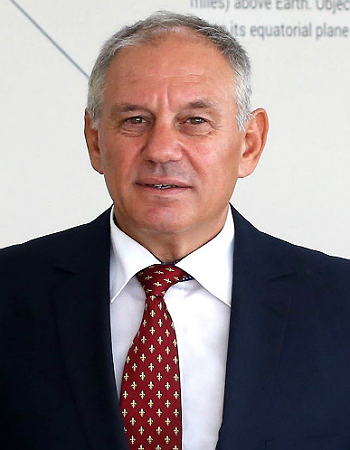Practically the business-education connection barely exists in this country. The issue has many layers and is an old one. The poor distribution of universities’ state funding leads to inadmissible amortization of their facilities, resulting in the lack of any motivation, as far as both students and lecturers are concerned. Hence the need of additional training for anyone, who has just stepped on the labor market.
The recently signed frame agreement for joint communication between the University for Telecommunications and Posts in Sofia and one of the major IT companies here gives hope. Thus the first in Bulgaria joint academic program, based on the principles of public-private partnership is being created. Its goal is to provide professional training of a high quality via direct work of the IT companies with the students. Rector of UTP Prof. Dimitar Radev gives us the details:
 “The Computer Administration of Software Applications major was established more than a year ago totally following the request of the business. The curriculum meets the criteria of both the university education and the IT HR users on the market. The enhanced teaching of English is typical for the specialty’s first year, followed by the same exam that the applicants for a multinational company hold. In the second year the students must have the skills required for the company’s teams. We now have students, invited to join the company and we will double their number next year, as other IT firms have joined.”
“The Computer Administration of Software Applications major was established more than a year ago totally following the request of the business. The curriculum meets the criteria of both the university education and the IT HR users on the market. The enhanced teaching of English is typical for the specialty’s first year, followed by the same exam that the applicants for a multinational company hold. In the second year the students must have the skills required for the company’s teams. We now have students, invited to join the company and we will double their number next year, as other IT firms have joined.”
The educational ministry is now forming a Software Education Council with the ambition to provide 20,000 experts – the current deficit within the sector.
“We are currently working on a joint project with other outsourcing IT companies”, Prof. Radev further explains. “We are preparing several other computer halls. Many of the companies offer internships and hourly employment to students. We try to find a business leader for each of the specialties. We need to adapt the professional training of our experts to the requirements of the IT companies that have entered Bulgaria’s market – and those are many. We have the basics in our education, now we need to stress on the professional training.”
What are the future goals of the university, set by Prof. Radev?
“We try to implement other contemporary forms of education, such as online training, so that we can invite lecturers from different European universities, without taking away any of their real time. We think this will add to the quality of training. We wish to fill in the capacity given by the state with expert students. The main thing that university education should be focused on is the motivation of young people. They will study when they see any results from their labor.”
English version: Zhivko Stanchev
The usurpation of cultural heritage is one of the many inevitable consequences of any military conflict, both historically and today. Until the end of the war in Ukraine, it is impossible to adequately analyse the extent of the damage caused to the..
Athens plans to modernise the Greek army by 2030 Greece's Defence Minister Nikos Dendias presented the plan for changes in the army to the parties in parliament. The reforms will cover all three branches of the military. By 2030, 33 units..
A short video kaleidoscope of the "untold stories" of worthy Bulgarians - scientists, entrepreneurs, engineers, artists - who have contributed to our country's good image in the eyes of the world opened an unconventional public forum that showcased the..
According to the Annual Report on the Health Status of Bulgarian Citizens for 2023, t he main cause of death in Bulgaria is diseases of the..
At the Bulgarian Embassy in London, Prof. Bettany Hughes presented excerpts from the new BBC series - Wonders of Bulgaria. Prof. Bettany..

+359 2 9336 661
